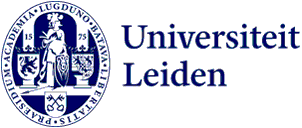
From fat bikes to paper bags: assessing their total environmental impact is becoming even more important
A paper bag is less environmentally friendly than it seems. Life cycle assessment (LCA) reveals the total environmental impact of products or production processes, and EU rules are going to make this even more important. That Leiden University should have the first Professor of LCA is logical.
‘You’ll only see it when you understand it,’ is a well-known Johan Cruijff saying and also the title of the inaugural lecture of Jeroen Guinée, Professor of Life Cycle Assessment. For example, he’s horrified by fat bikes. Although he’s not the only one, he is mainly looking from the perspective of material wastage. He sees this in the tyres, wheel rims, axles and cranks, and sometimes they even have extra large suspensions. ‘Those bikes are incredibly overdesigned. There’s a ridiculous amount of metal and rubber in them, which is actually no longer appropriate in these times of growing environmental awareness.’
The godfather
Guinée transferred from Wageningen to Leiden as a student in 1986, in order to learn about what we now call life cycle assessment. This discipline is what really put the Institute of Environmental Sciences (CML) on the global map. Guinée has stayed here ever since then. ‘In 1992 we published the first Handbook on Life Cycle Assessment. The authors included Gjalt Huppes, the godfather of LCA in the Netherlands. The updated 2002 version is still a standard reference book worldwide.’ It’s therefore logical (to use another of Cruijff’s favourite words) that the first professor should come from the same place as the discipline; as far as he knows, Guinée is the first in the world.
'Behind every product that we use, there’s a whole system.'
Effect on all environmental problems
‘Behind every product that we use, there’s a whole system,’ says Guinée. Life cycle assessment involves identifying all the environmental effects of a product or production process. What raw materials are required, and in what quantity; how much energy is consumed in extracting and processing them? What emissions of CO2 and, for example, nitrogen or toxic substances are associated with making and using a product? And with processing it when it becomes waste? ‘You then use calculation models to translate all those outcomes into effects on climate change, eutrophication, acidification, raw material use and many other environmental problems.’
All green claims will have to be proved
A proposed new European Union law will make this life cycle assessment even more important. Under the Green Claims Directive, which the European Parliament may approve next spring, manufacturers and retailers will no longer be permitted to simply claim that packaging or electronic products, for example, are environmentally friendly. Guinée: ‘They will have to prove this with life cycle assessment. And a lot of the research funded by the EU, for example on technological innovations, also includes life cycle assessment as standard.’ The emphasis here is increasingly placed on assessing products or processes that are still on the drawing board and don’t exist as yet. ‘We call this ex ante life cycle assessment. It means we can work with designers and R&D departments, for example, to make existing or new products and processes more environmentally friendly.’
Garbage in, garbage out
LCA researchers often use large databases, supplemented with specific data about the product or process in question. Guinée says that LCA is the best instrument available for quantifying environmental impact, but it is never perfect. ‘That will always be the case, but there’s one thing I would really like to change. Not having the necessary data has been a big problem within LCA for the last thirty years. It would help tremendously if companies disclosed all their process data, apart from a few ingredients that are their own ‘chef’s secret’. We can’t solve this unless the government issues some guidelines. As the English say: “Garbage in, garbage out.” If you can’t put all the correct data in, you won’t be able to rely on what comes out.’
Consuming better, but also consuming less
Will life cycle assessment ever take us to the point where we can continue consuming without feeling guilty? Just using a paper bag instead of a plastic bag? Unfortunately, it’s not so simple. ‘To process wood chips into the paper for a paper bag, you need chemicals with high environmental pressure. And a paper bag will perhaps not be re-used as often, and that’s another important consideration.’ LCA can reveal ways to make consuming more environmentally friendly, but it’s also important to consume less, Guinée believes. ‘There’s no such thing as a free lunch,’ he explains, with another sardonic English expression.
Text: Rianne Lindhout
